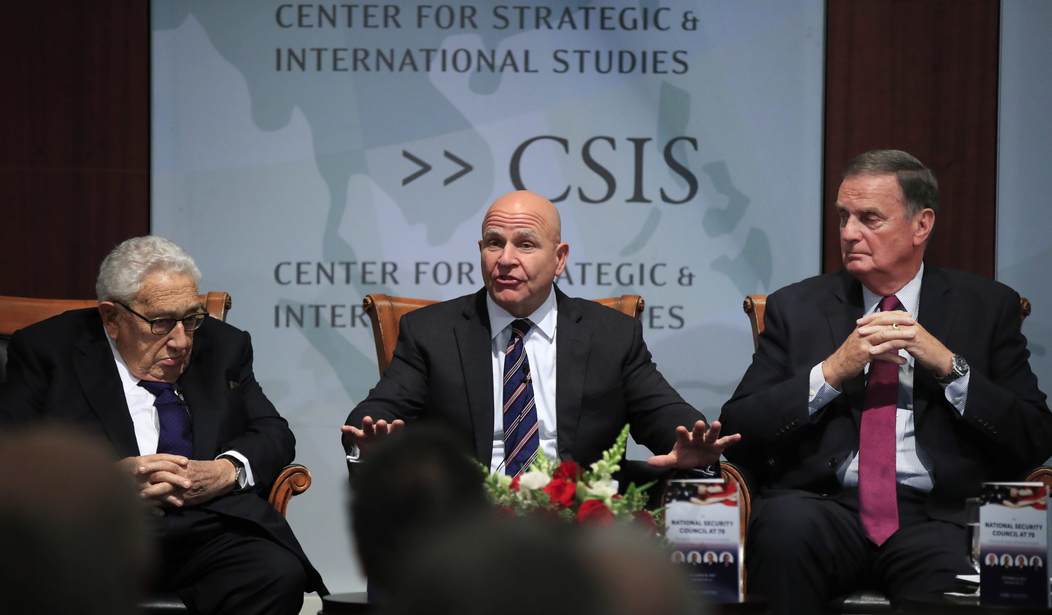WASHINGTON – National Security Advisor H.R. McMaster today reminded administration officials that speaking to the media about classified information involving national security matters is a treasonous offense, while calling for the restoration of “sacred trust.”
The Trump administration has dealt with a barrage of leaks, though not all of a classified nature. In August, Attorney General Jeff Sessions announced that the Department of Justice has more than tripled the number of active leak investigations compared to the backlog of investigations pending when President Obama left office.
“In recent years, the problem with leaks has become a real challenge to national security,” McMaster said at the Center for Strategic and International Studies. “So I think what’s very important is everyone that’s involved in these policy discussions understands the sacred trust that is placed in them, and they realize that speaking to the media about government deliberations is treasonous when it involves national security.”
“I think that with the confidence established, the more transparency the better in terms of common understanding across departments and agencies, and so that’s the balance that you really need to strike,” McMaster continued.
McMaster explained that President Trump has directed the national security team to carry a perspective of “pragmatic realism,” an emphasis on the link between security and prosperity and the pursuit of “peace through strength.”
Sessions in August echoed comments from Trump by “condemning in the strongest terms” the unprecedented number of leaks “undermining the ability of our government to protect this country.”
Sen. Ron Wyden (D-Ore.) today penned a letter to Sessions asking for greater detail on DOJ’s plan to target journalists, specifically asking for extensive information on subpoenas, search warrants, national security letters and any other court documents targeting journalists. Wyden suggested that Sessions restrict the department’s ability to go after journalists.
“Journalists play a critical role in our democracy, and the chill associated with the government obtaining their communications records in order to identify their sources cannot be overstated,” Wyden wrote.
President Nixon’s National Security Advisor Henry Kissinger, who appeared alongside McMaster, said that shared, transparent knowledge is supposed to be good, but strategic efforts can be paralyzed if national security matters are limited by the bureaucratic process. The essence of creative policymaking, he said, is going “down the road in a lonely fashion.”
President Obama’s National Security Advisor James L. Jones, Jr., also at the CSIS forum, noted that his administration held one- to two-hour video teleconferences on a weekly basis, and information from those talks were never revealed to the public. He cautioned that when secret channels are established, it’s important for the administration to immediately relay feedback to department secretaries in order to avoid fragmentation and a national security advisor potentially competing with departments.
Jones added that he believes the National Security Council was underfunded during his tenure. He said that the makeup of the NSC included about two-thirds detailees and one-third permanent personnel, and the detailees had to be replaced after the first year. He said he wished those proportions had been reversed.
“On my watch, the National Security Council was severely underfunded, severely underfunded, grossly underfunded, and the only way to fight that was to get detailees from the agencies,” he said. “We had it wrong. We should have had two-thirds permanent personnel for policy and one-third detailees that can be rotated.”
President Bush’s National Security Advisor Stephen Hadley said that some secrecy is needed because national strategy will not succeed if plans are telegraphed to enemies.
“I think that’s a distinction we’ve lost, and we need to try a discipline to reintroduce into the system,” Hadley said.









Join the conversation as a VIP Member